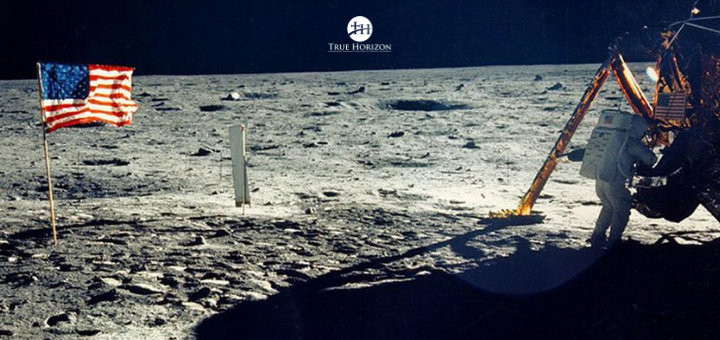Passing On Our Narcissism
 If you turn your TV on these days, you can’t avoid hearing about the Casey Anthony trial going on down in Florida — the details of which are horrifying and disgusting. The case reminds me of a study I read about and am re-posting here because Casey Anthony is a poster child for this topic … on steroids. It appears that little Caylee Anthony suffered the consequences of this trend from a mother who at best (even if she is innocent of murder) found her daughter to be a severe inconvenience, and at worst, bypassed the day care option by resorting to, shall we say, a more permanent solution.
If you turn your TV on these days, you can’t avoid hearing about the Casey Anthony trial going on down in Florida — the details of which are horrifying and disgusting. The case reminds me of a study I read about and am re-posting here because Casey Anthony is a poster child for this topic … on steroids. It appears that little Caylee Anthony suffered the consequences of this trend from a mother who at best (even if she is innocent of murder) found her daughter to be a severe inconvenience, and at worst, bypassed the day care option by resorting to, shall we say, a more permanent solution.
I start with the results of the Narcissistic Personality Inventory (NPI) — a nationwide survey of 16,475 college students conducted between 1982 and 2006. In a nutshell, the survey revealed that the narcissistic attitudes of our youth have risen steadily over the past 25 years. In its latest iteration, two-thirds of the students demonstrated above average narcissism — up more that 30% since 1982.
Reading this reminded me of another survey conducted during the 1990s wherein a research group studying the state of American education released a report comparing the math scores of U.S. and Japanese high school students. The results were not surprising. The Japanese students scored significantly higher than their American counterparts on an equivalent test. But what was notable was the response to a question asked of both groups of students right after they had finished taking the test but before they had seen the results. The Japanese students overwhelmingly expressed dejection and embarrassment for what they considered to be a poor performance on the test. The American students were confident they had aced it.
On hearing the reports of this study, one well-known critic of the public school system in America remarked, “I think its safe to say we’ve done a good job of addressing any worries we might have had about our children’s self esteem.”
Where did these narcissistic tendencies originate — and why?
Of course, the root of the problem is man’s intrinsic self-centeredness. It is the primary hallmark of human nature that has been plaguing us since the Fall. But what has made this trait of loving ourselves so deeply accelerate so rapidly in the last two generations? This past week I got a partial, and significant, answer to that question.
Rachel Zimmerman‘s article in the Wall Street Journal’s Personal Journal examined the “Toll Kids Take on Parents’ Sex Lives.” In yet another study, the Journal of Family Psychology found that two-thirds of couples …
experience a significant decline in marriage satisfaction — including less frequent or less satisfying sex, more conflict and more emotional distance — after the first baby arrives.
Now, there is no denying that having kids changes our lives. But it is sad and telling that so many believe these changes to be detrimental to their “marriage satisfaction” — especially when you consider some of the attitudes and comments that accompany this view.
A report of the National Marriage Project at Rutgers University notes that …
many Americans now view life before children, and after they fly the coop, as the most satisfying years of adulthood, while children are viewed more as a disruptive force …
This Rutgers study found that the discord is said to result from “sleep deprivation, loss of freedom, lack of time and keeping score on who does more dishes.”
In addition, since many delay marriage and kids until later in life, older parents “suffer” more because they “…have had many more years to establish their habits and enjoy their freedom [and therefore] may harbor more resentment about the sacrifices children require.”
One mom was quoted in the survey as saying that “some of her best days, sexually speaking, are when her daughter is in day care … ‘Day care,’ she says, ‘is the best thing that’s ever happened to me.’”
Civilizations before ours have become self-infatuated (Rome comes to mind) and suffered the consequences of shirking their responsibility to sustain and nourish the continuation of their society. But at no time in human history has that tendency been so well supported by cultural influences that make matters worse. We live in an age when we can connect a vast library of personal entertainment and information directly from our iPods to our heads — an age that allows us to retreat into our own little self-created, self-directed world. Technology (personal phones, computers etc.) fuels the fire of self infatuation while the trappings of our culture serve to convince us that we are the center of the universe.
Our kids not only suffer the consequences of these trends by being relegated to the status of inconvenient distractions, they are also directly affected by it. They too are enticed and infatuated with even more distractions. They too are caught up in the descending spiral of self-centeredness that is tightening into an inescapable whirlpool. When the whirlpool spins fast enough, all you can see is your reflection from the other side.
When you hear comments like those above it becomes obvious that the reason our kids are so narcissistic is right in front of our faces — literally — in the bathroom mirror. This is not to belittle the use of day care for those who require it, or to minimize the inevitable changes that occur when kids enter a married couple’s life. Instead, I only mean to expose the attitude with which some approach these things. Kids sense when they are seen as an imposition on the selfishness of their parents. They know when the primary focus of their parents’ lives is not them, but the pursuit of their parents’ own self-satisfaction and the avoidance of anything that may challenge their personal “freedom” or “happiness.”
If those who consider their life with kids to be an imposition on their freedom or as a source of resentment that can only be assuaged by pawning the kids off at the nearest day care facility, it is no wonder today’s kids are so self-focused.
They learned it from their parents.




